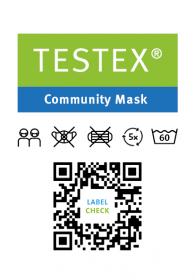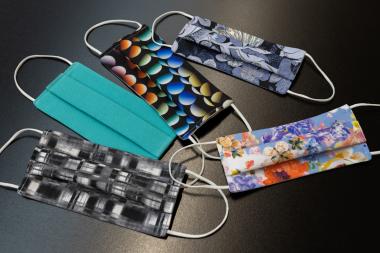ITA: New pre-competitive partnership model for industrial companies
The ITA Group, consisting of the Institute for Textile Technology of RWTH Aachen University (ITA), their research and development service provider ITA Technologietransfer GmbH (ITA GmbH) are proud to announce their new strategic positioning: in order to better respond to actual industrial demands and needs, ITA decided to install a partnership model as of January, 25 2022.
The ITA Group comprises the ITA of RWTH Aachen University, a leading research and qualification research institute with 400 employees in the areas of fibre-based high-performance materials, textile semi-finished products and their manufacturing processes and the ITA Technologietransfer GmbH, the partner of the industry in R&D, providing technology and knowledge transfer, as well as offering comprehensive solutions along the entire textile value chain.
Prof. Dr. Thomas Gries, Director of ITA, explains the new partnership model:” The impact of the Covid-19-crisis has shown once more the importance of long-term trustworthy business relationships. Therefore, we are establishing our new partnership model where we will even more closely cooperate with our actual and future industrial partners, providing them with the latest technologies and innovations from R&D side. We will initiate networking and workgroup meetings, offer access to ITA´s large machine parks and labs, carry out joint partner projects and commonly organized publicly-funded projects as well as training for partner´s employees and HR opportunities.”
Dr. Christoph Greb, Scientific Director of ITA: “We are very happy to initiate this new partnership model where science, research and industry are working shoulder to shoulder in pre-competitive projects on our future projects along the entire value-chain from the fibre to the final component in order to close a missing gap and form innovative paths forward in various industrial fields.”
During an initial session of three Innovation days in hybrid format, ITA successfully introduced in September 2021 the first industrial partner projects which will be carried out, among them “Recycling of composite battery cases”, “Recycling of composite pressure vessels”, “Natural Fibre Composites”, “Textile Structures with focus on biaxial Warp-Knitted Structures”, “Factory of the Future”, “Tapes and Hybrid Yarns”.
The next opportunity to meet with ITA is at JEC DACH in Frankfurt (November 23 and 24 2021).
RWTH Aachen, ITA, Textiltechnik
ITA















